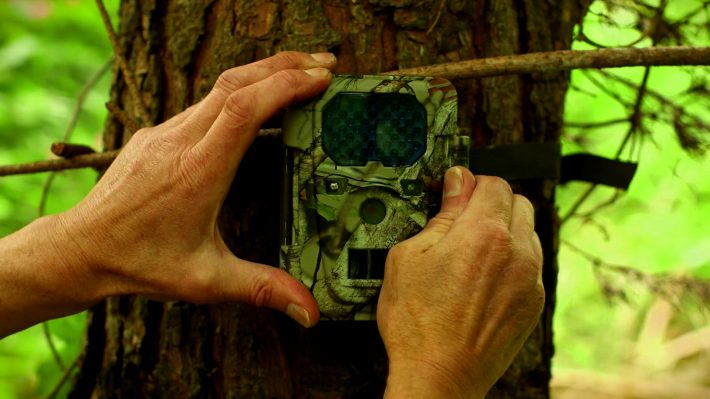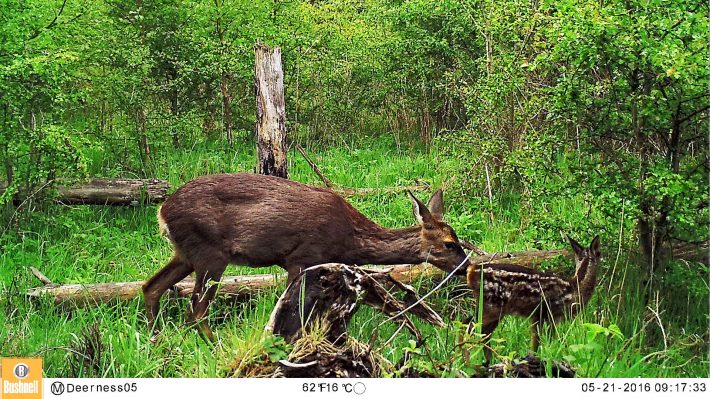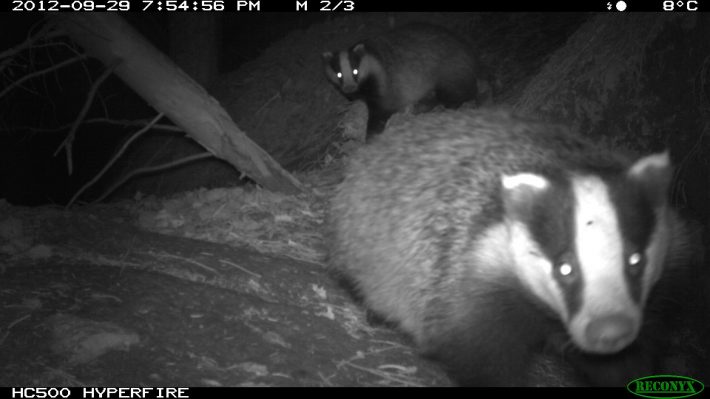Citizen scientists wanted to help record UK’s mammal activity
Durham University Press Release
Citizen scientists are being urged to help chart UK mammal activity so researchers can better understand how animals are coping with ecological challenges such as climate change.

The MammalWeb network was founded in 2013 by scientists at Durham University to collect camera trap images of the UK’s mammals to build a picture of their habits and behaviours.
MammalWeb’s database has grown from originally being North East England focussed to gathering data from over 2,500 sites across the UK and beyond.
Now, researchers want to expand the project’s database further to provide a more comprehensive record of UK mammal activity to support future research and conservation activities while also helping to inform policy decisions that affect wildlife.
Now, more than ever, it’s vitally important that we build a comprehensive picture of the UK’s mammal populations.
They say that the need for large-scale wildlife monitoring is increasingly important as wildlife responds to climate change and other causes of global biodiversity loss strongly linked to human activities.
The researchers have made their call to citizen scientists as they publish an overview of the MammalWeb project to date in the journal Ecological Solutions and Evidence.
In the UK, contributors’ camera traps have captured 440,000 classified image sequences and videos, of which more than 180,000 are mammal detections.
In total, the project has recorded the equivalent of more than 340 camera trap years of wild mammal activity across the country.

Rare captures in North East England over recent years have included both North and South American members of the raccoon family, highly adaptable animals with the potential to cause trouble for native wildlife.
Camera traps have also captured other originally non-native UK species such as muntjac deer, fallow deer, grey squirrels, brown hares and rabbits.
Native UK species such as red squirrels, badgers, otters, foxes, stoats, wild boar and pine marten have also been caught on film.
Professor Phil Stephens, a co-founder of MammalWeb, in the Department of Biosciences, Durham University, said: “Now, more than ever, it’s vitally important that we build a comprehensive picture of the UK’s mammal populations.
“We need to build a greater understanding of how climate change and events such as the droughts we experienced in the UK this summer will impact upon mammal distribution and behaviour.
“Through camera trap technology we can track and monitor mammals’ habits and better understand what policies or interventions we might need to introduce to support these wonderful creatures, which include species of cultural, ecological and economic significance.”

The researchers said that expanding MammalWeb would address a “lack of systematic, widespread mammal monitoring, and a recognised deficiency of data” in the UK, while complementing existing approaches to mammal monitoring.
They added that there was scope to broaden the UK’s mammal data by encouraging more citizen scientists and organisations to share their camera trap content via MammalWeb, creating a comprehensive central store for this information for use by researchers across the UK and beyond.
There are hundreds if not thousands of people and organisations out there who are capturing data
Research overview lead author and MammalWeb co-founder Dr Pen-Yuan Hsing (currently at The University of Bristol) said: “Eighty-one percent of respondents in a recent YouGov poll expressed a need for urgent action on protecting our natural environment, and we know there are hundreds if not thousands of people and organisations out there who are capturing data on mammals using camera traps.
“Bringing together this information in one place helps us to build a bigger, more coherent dataset charting the UK’s mammal populations and activities.
“By getting involved, people can really make a difference to understanding and protecting the future of these amazing animals, which are integral to the biodiversity that we all intimately depend on.”
You can read the full article here:
, , , , , , , , , , , & (2022). Large-scale mammal monitoring: The potential of a citizen science camera-trapping project in the United Kingdom. Ecological Solutions and Evidence, 3, e12180. https://doi.org/10.1002/2688-8319.12180
Like what we stand for?
Support our mission and help develop the next generation of ecologists by donating to the British Ecological Society.